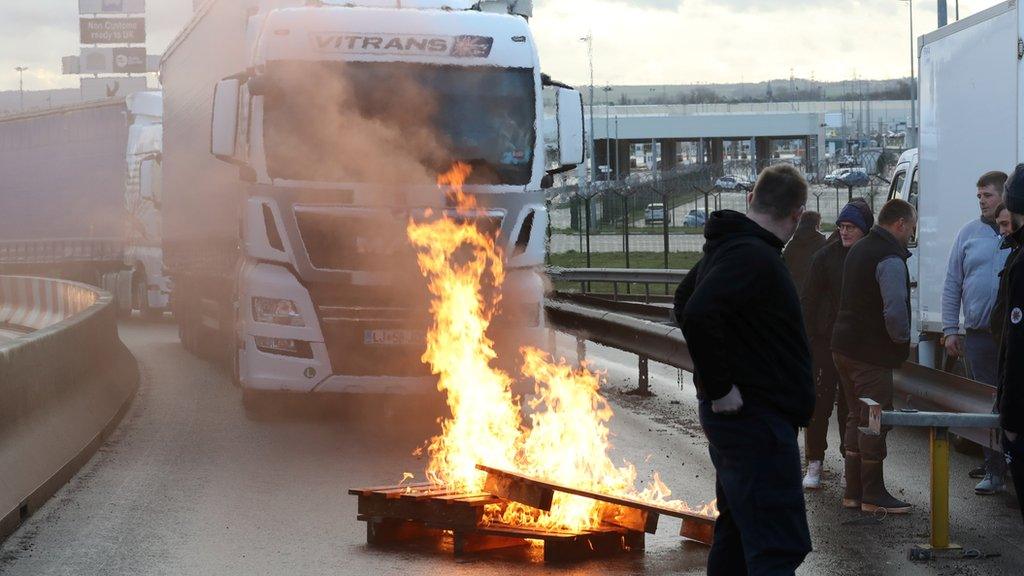Brexit deal: Nicola Sturgeon says 'major promises' broken on fishing
- Published
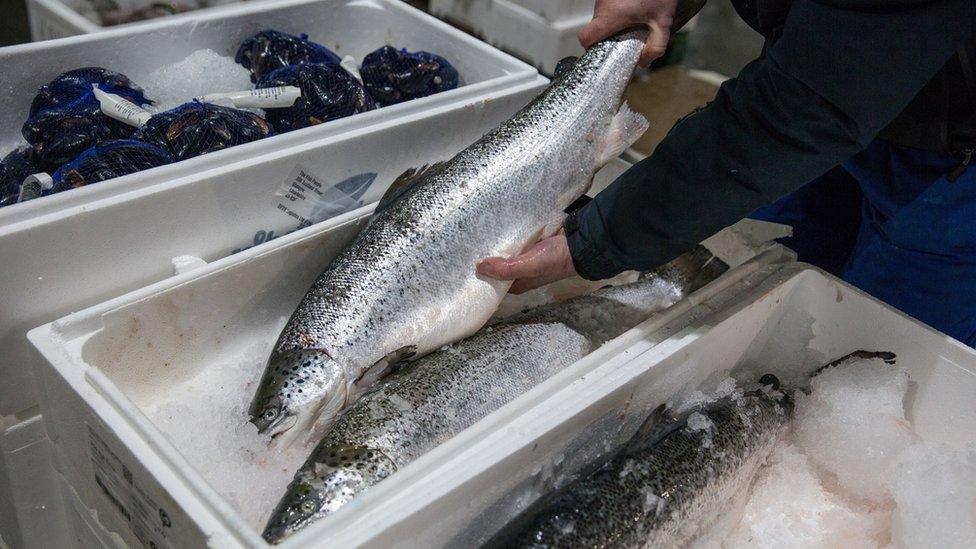
First Minister Nicola Sturgeon has accused the UK government of breaking promises to Scotland's fishing industry over the post-Brexit trade deal.
The Scottish government said the agreement announced on Thursday was "a bad deal for fishing".
But the UK government has insisted the deal will allow Scotland's fishermen to flourish outside the EU.
Negotiations in Brussels went down to the wire over what EU fishing boats are allowed to catch in UK waters.
Until the end of this year, the UK will be bound by the EU's rules including the Common Fisheries Policy (CFP).
There will then be a five-and-a-half year transition period for the fishing industry.
Asked where the biggest compromises had been made, Prime Minister Boris Johnson said the UK had wanted "complete control over our fisheries from the get-go."
"The EU began with wanting a transition period of 14 years, we wanted three years," he said, describing the final agreement as "reasonable".
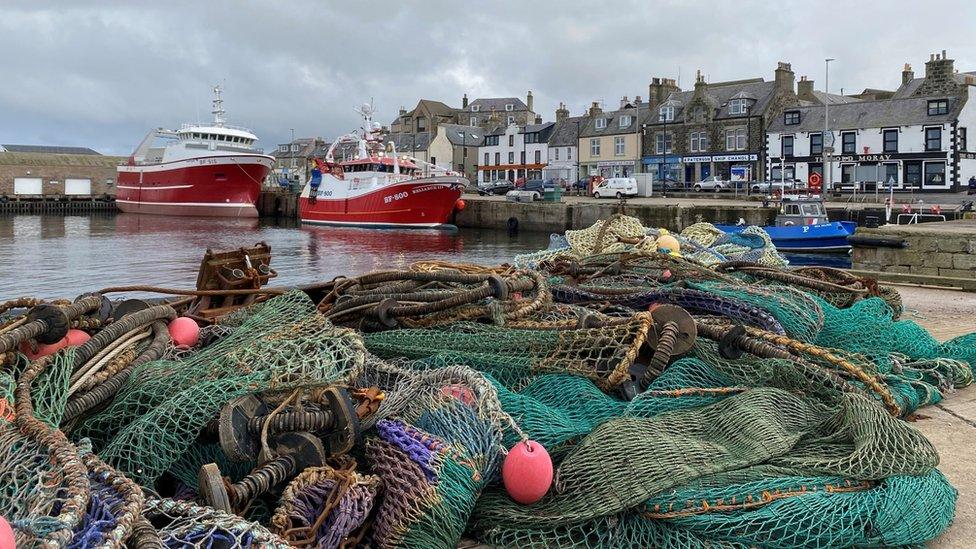
Ms Sturgeon said it appeared that "major promises" made by the UK government on fisheries had been broken.
"The extent of these broken promises will become apparent to all very soon," she said.
"People in Scotland voted overwhelmingly to remain in the EU, but their views have been ignored.
"This is a far harder Brexit than could have been imagined when the EU referendum took place, damaging and disrupting this nation's economy and society at the worst possible time."
The first minister argued that Scotland "has the right to choose its own future as an independent country and once more regain the benefits of EU membership".
'Huge opportunities'
However, the UK government's Scottish Secretary Alister Jack said the deal was "great news for Scotland's businesses".
He said it brought "huge opportunities" and "exceptional access" to the EU market and new markets around the world.
"We have an agreement on fisheries which will ensure that our fishermen, and our coastal communities, will flourish outside of the EU's unfair Common Fisheries Policy," he said.
"The UK will once more be a sovereign coastal state."
He added that the deal would protect famous Scottish products such as whisky, Arbroath smokies and Orkney cheddar.


When Boris Johnson was asked what he might give Nicola Sturgeon for Christmas, he promised a post Brexit bonanza of fish.
It seems the largely Scottish-based UK fishing fleet will be able to catch more in home waters but not as much as they'd hoped.
Mr Johnson admits compromising on fishing to get a trade deal with the EU.
He started out insisting there should be annual negotiations for access to UK waters.
Instead he appears to have guaranteed EU fleets continued, if reduced, fishing rights for at least five and a half years.
There was a time when all Scottish Conservative MPs said they "could not support" an agreement with such a pre-existing arrangement built in.
Today, both the Scottish Conservative leader, Douglas Ross and the Scottish secretary, Alister Jack, welcomed the outcome of negotiations.
While Nicola Sturgeon accuses them of breaking major promises on fishing, the UK government will hope its offer of a £100m support package will ease any industry disappointment.

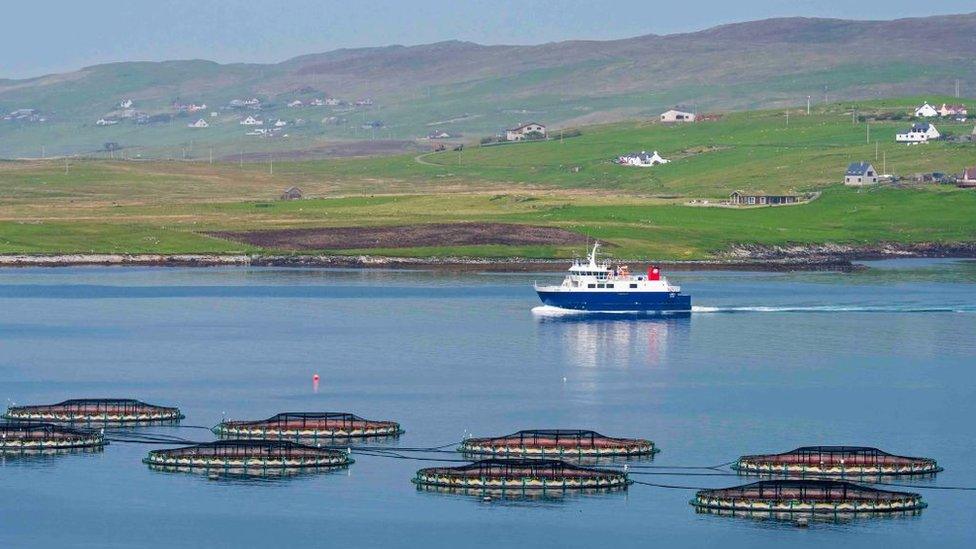
The seafood industry welcomed news that a deal had been done, but warned that disruption when trying to get the fish into the single market would have "serious consequences" for perishable products such as salmon.
Seafood Scotland chief executive Donna Fordyce said: "With Brexit will come new, untested, and extremely complex processes that the seafood sector will have to comply with in just a week's time, at huge cost which they can ill afford just now.
"This bureaucratic blockade will result in some lorries not making it to Europe in time to ensure their highly perishable cargo is saleable.
"Seafood businesses will try their best to navigate the changes, but some will not survive."
The Scottish Salmon Producers Organisation added that the industry faced "lots more red tape, bureaucracy and paperwork".
Meanwhile The Scottish Fishermen's Federation said the government had not yet provided the full text of the agreement but, on the surface, it did not appear to "deliver on the industry's aspirations".
Chief executive Elspeth Macdonald said: "The princples the government said it supported - control over access, quota shares based on zonal attachment, annual negotiations - do not appear to be central to the agreement.
"After all the promises given the industry, that is hugely disappointing."
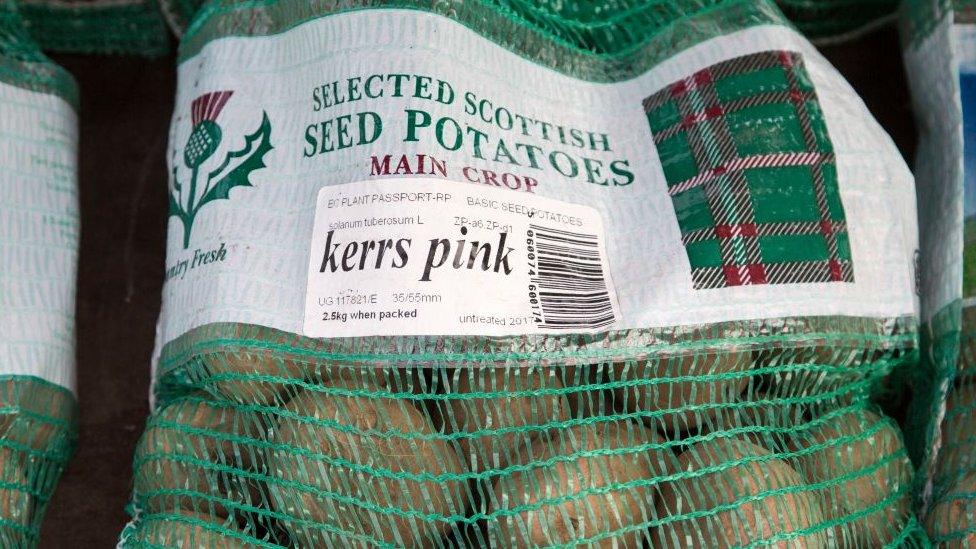
Scotland Food and Drink said that without a deal some exports would have faced "crippling" tariffs of up to 80%.
James Withers warned of more disruption at ports, and urged the UK government to seek a grace period on the introduction of new export checks on 1 January.
Farmers' union NFU Scotland welcomed the avoidance of a no-deal Brexit, but said "fresh negotiations" should take place to facilitate the export of seed potatoes.
Under the new arrangements, the EU will allow almost all food and plant exports from Great Britain to continue after Brexit - but not seed potatoes.
Many Scottish farmers grow seed potatoes to sell to farmers in warmer climes, where yield on potatoes is affected by year-round bugs and disease.
Archie Gibson, a breeder and merchant of seed potatoes, said the most immediate issue for farmers to assess was what to plant in their next crop.
"We have to decide, do we plant as usual in the expectation that a deal may come for third-country equivalence or do we not?"
He said it was a "very frustrating" situation.
Scottish Labour leader Richard Leonard said the prime minister's "irresponsible brinksmanship" and "gross mismanagement" of the process had caused "huge economic uncertainty."
Scottish Liberal Democrat leader Willie Rennie said it was "a raw deal" which would erect more trade barriers and add billions to the cost of imports and exports.
The Scottish Greens' Patrick Harvie said people in Scotland had been "badly let down by a Brexit they didn't vote for".
- Published24 December 2020
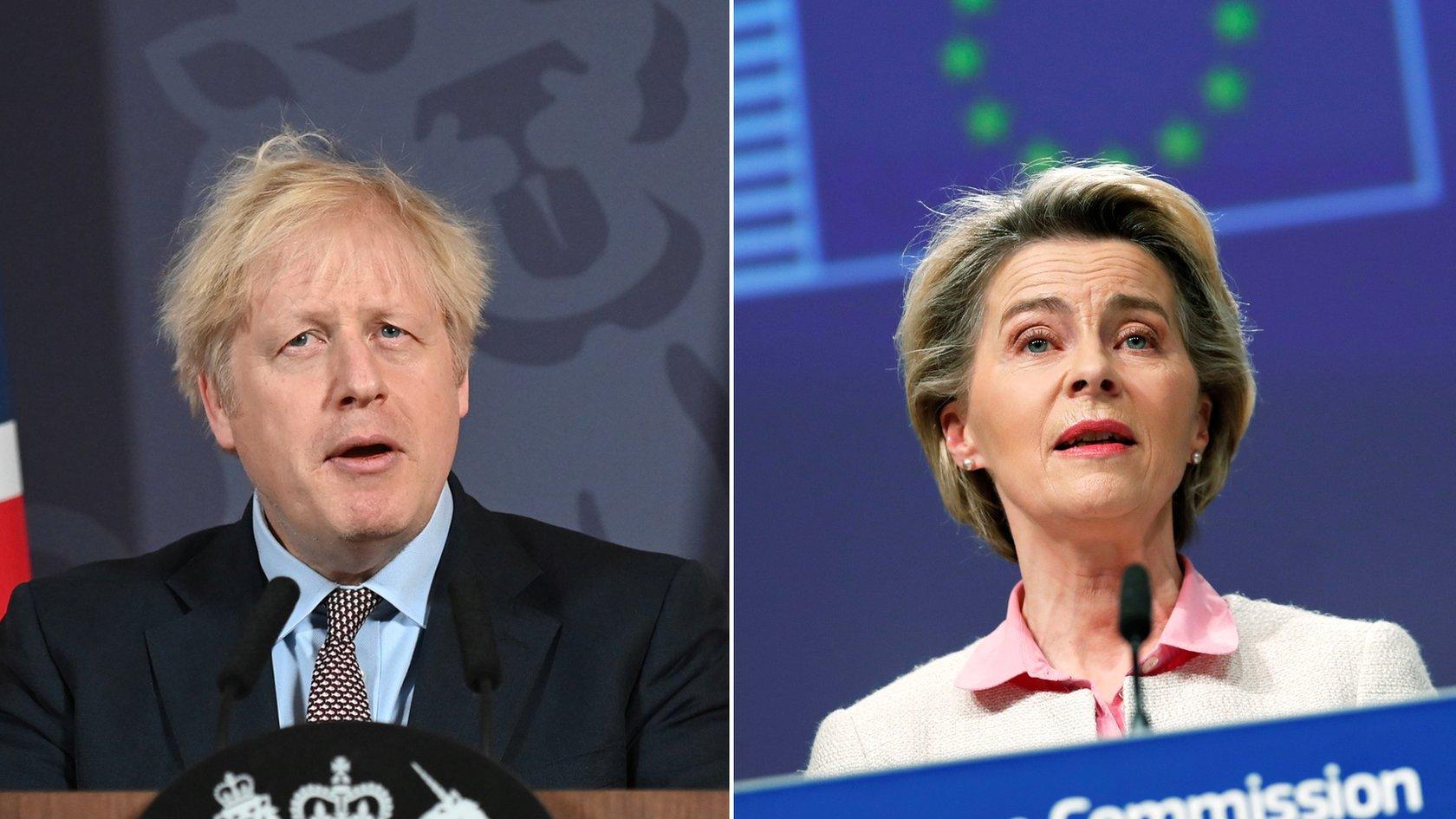
- Published23 December 2021
